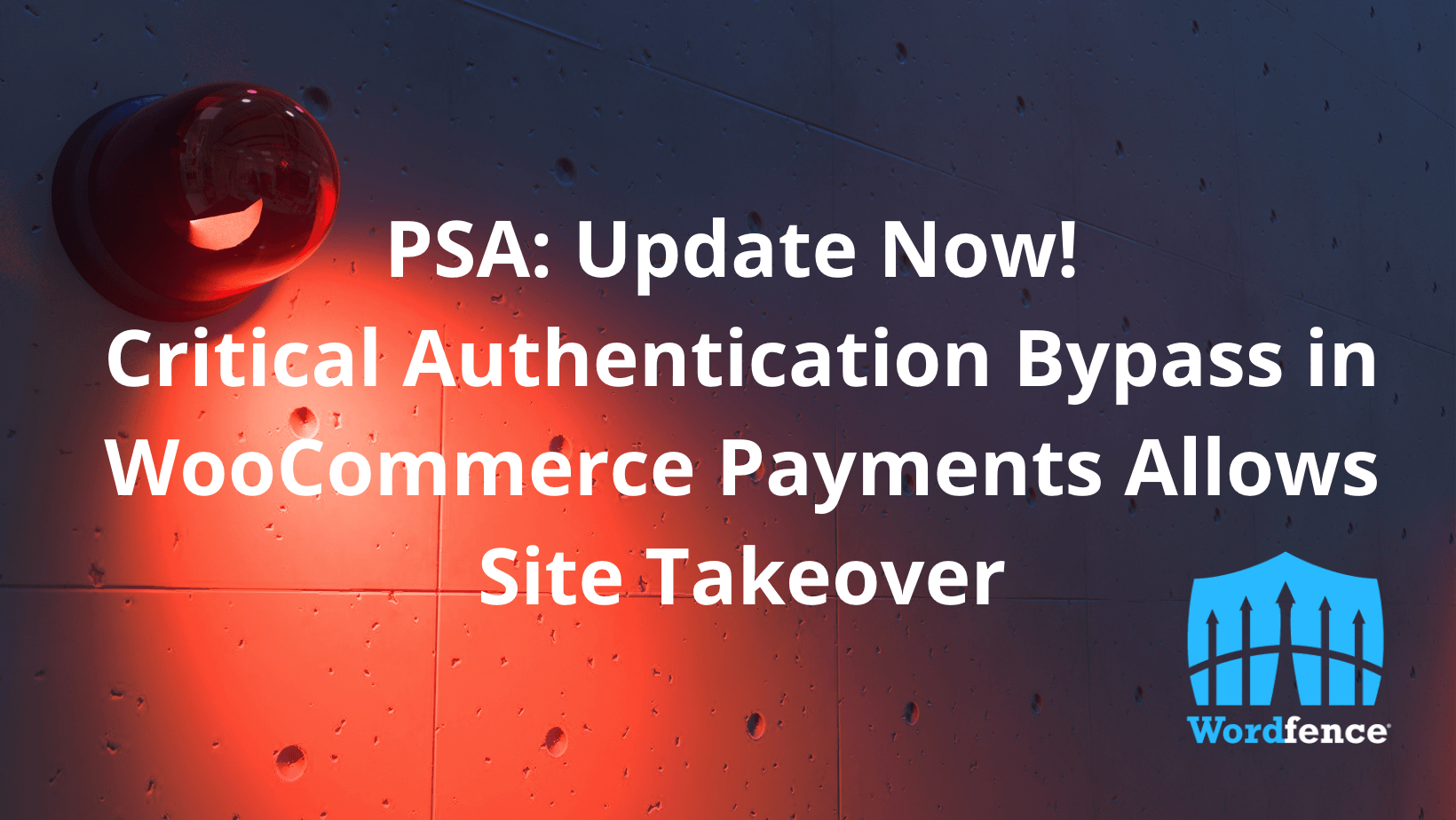This site uses cookies in accordance with our Privacy Policy.
Wordfence Research and News

WordPress Core 6.2.1 Security & Maintenance Release – What You Need to Know
On May 16, 2023, the WordPress core team released WordPress 6.2.1, which contains patches for 5 vulnerabilities, including a Medium Severity Directory Traversal vulnerability, a Medium-Severity Cross-Site Scripting vulnerability, and several lower-severity vulnerabilities.

Wordfence Intelligence Weekly WordPress Vulnerability Report (Apr 24, 2023 to Apr 30, 2023)
Last week, there were 77 vulnerabilities disclosed in 68 WordPress Plugins and 3 WordPress themes that have been added to the Wordfence Intelligence Vulnerability Database, and there were 32 Vulnerability Researchers that contributed to WordPress Security last week.

Multiple Vulnerabilities Patched in Shield Security
On March 20, 2023, the Wordfence Threat Intelligence team began the responsible disclosure process for two vulnerabilities in Shield Security, a security plugin with over 50,000 installations.

Hiding in Plain Sight: Cross-Site Scripting Vulnerabilities Patched in Weaver Products
On March 14, 2023, the Wordfence Threat Intelligence team initiated the responsible disclosure process for 2 nearly identical Cross-Site Scripting vulnerabilities in the Weaver Xtreme theme and the Weaver Show Posts plugin, which each have over 10,000 installations.

PSA: Update Now! Critical Authentication Bypass in WooCommerce Payments Allows Site Takeover
This post has been updated with additional information that has become available since its publication The Wordfence Threat Intelligence team regularly monitors plugin updates and reviews any indicating that a potential security issue may have been addressed.

Wordfence Intelligence Weekly WordPress Vulnerability Report (Mar 13, 2023 to Mar 19, 2023)
Last week, there were 92 vulnerabilities disclosed in 76 WordPress Plugins and 7 WordPress themes that have been added to the Wordfence Intelligence Vulnerability Database, and there were 34 Vulnerability Researchers that contributed to WordPress Security last week.

PSA: Intentionally Leaving Backdoors in Your Code Can Lead to Fines and Jail Time
In the cybersecurity field, we talk a lot about threat actors and vulnerable code, but what doesn’t get discussed enough is intentional vulnerabilities and becoming your own threat actor.

Wordfence WooCommerce 2FA: Set Up This New Feature To Protect Your Customers
On February 15, we made the exciting announcement that the latest release of Wordfence, version 7.9.0, includes a new feature: WooCommerce 2FA (two-factor authentication) for customer level users.

The WordPress Ecosystem is Becoming More Secure with Responsible Disclosure Becoming More Common
The Wordfence 2022 State of WordPress Security Report was released on January 24th, 2023.

Wordfence Adds Two Factor Auth for WooCommerce Customers
Wordfence 7.9.0 has been released and it includes a very exciting feature for WooCommerce sites and other WordPress sites wanting to make two factor authentication (2fa) available to their site users or members.
